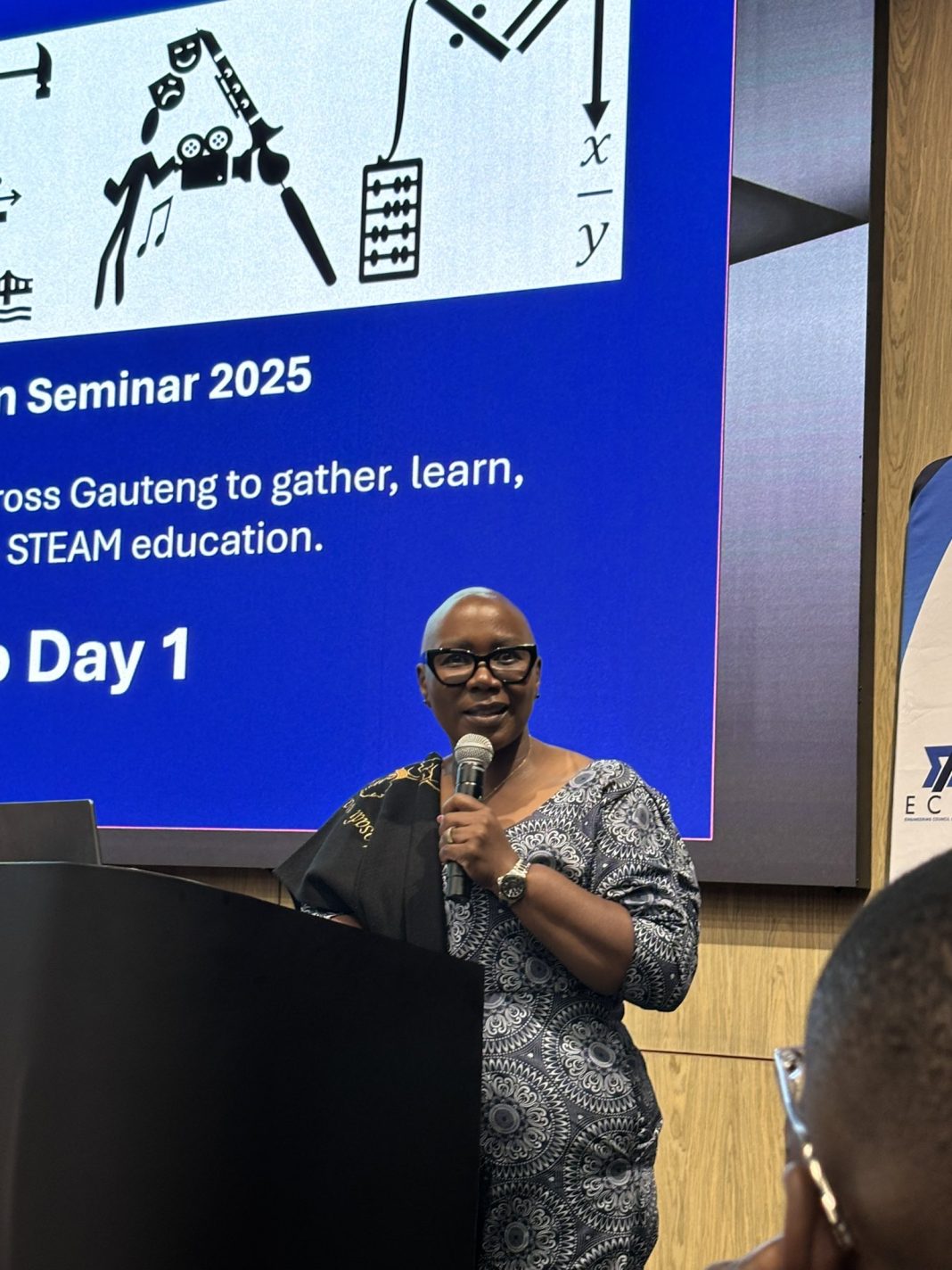By Johnathan Paoli
In a concerted effort to revitalise Science, Technology, Engineering and Mathematics (STEM) education in South Africa, Science, Technology and Innovation Deputy Minister Nomalungelo Gina has called for strategic interventions and collaboration.
“South Africa’s ability to compete globally and address national challenges through innovation depends on its investment in human capital development,” she said.
“However, the critical gaps that persist in STEM education undermine our efforts to build the necessary research and innovation capacity and as well as the technical skills for a knowledge economy, particularly among historically marginalised groups.”
She was delivering the keynote address at the second annual regional Science, Technology, Engineering, Arts and Mathematics Education Seminar in Johannesburg on Friday,
It was attended by education and industry leaders, including Sifiso Learning Group CEO Sizwe Nxasana, Werner Olivier from the Govan Mbeki Mathematics Development Centre, and Deloitte Chief Sustainability Officer Ashleigh Theophanides.
Gina emphasised the need to counteract the declining enrolment in STEM subjects, a trend that threatened the country’s innovation capacity and global competitiveness.
She underscored the critical role of human capital development in South Africa’s economic growth.
Referencing the Science, Technology, and Innovation Decadal Plan (2022-2032) and the White Paper on Science, Technology and Innovation, she stressed how these policy documents advocated for inclusive capacity-building initiatives to bridge STEM education gaps.
The deputy minister outlined several key factors contributing to the decline in STEM subject enrolment.
Many rural and township schools lacked fully equipped science laboratories and computer facilities, with some schools relying on corporate donations to establish makeshift computer labs.
She highlighted how a societal perception that mathematics was a difficult subject, discouraged learners from enrolling in STEM disciplines.
Some schools do not offer STEM subjects due to a lack of qualified educators and even where teachers are available, their training may not align with modern instructional approaches.
Gina stressed how schools were under pressure to maximise matric pass rates, often at the expense of prioritising STEM subjects.
To address these challenges, the deputy minister said the government has committed to several key interventions.
It planned to establish specialised STEM schools to enhance student outcomes in mathematics and science, with a significant focus to be placed on promoting gender inclusivity and addressing historical inequalities in STEM participation.
Citing President Cyril Ramaphosa’s 2021 address at the Basic Education Lekgotla, the deputy minister spoke about the need to realign education policies with the demands of the Fourth Industrial Revolution.
Thirdly, she said her department would be engaged in enhancing pre-service and in-service teacher training in STEM subjects, and urged universities to update their instructional approaches to align with global best practices.
Gina announced that she had initiated engagements with business chambers across South Africa to secure private sector investment in STEM education.
She called on the corporate sector, as the primary beneficiary of STEM-trained professionals, to fund digital and innovation hubs, particularly in rural areas.
Lastly, a flagship initiative involving the establishment of one STEM school of excellence per province which was strategically located in rural areas, was underway.
The project, led in collaboration with the Govan Mbeki Mathematics Development Centre and the Sifiso Learning Group, aims to set a benchmark for STEM education in South Africa.
The deputy minister concluded by emphasising the urgency of preparing the next generation for the evolving digital economy.
With artificial intelligence and other emerging technologies reshaping industries, South Africa must cultivate a skilled workforce capable of driving innovation.
She said that the government could not tackle this challenge alone and that it remained imperative that business, academia and civil society worked together to create a robust STEM education ecosystem.
INSIDE EDUCATION







